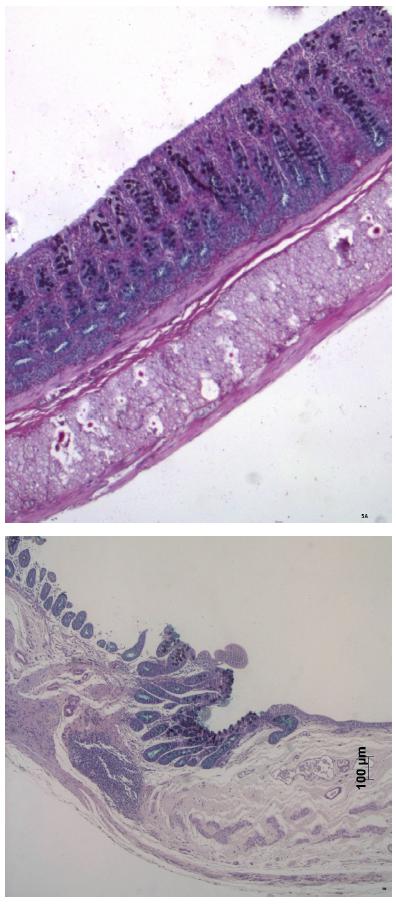Abstract
Purpose:
To evaluated the effects of L-lysine on the intestinal and urothelial epithelia in cystoplasty in rats.
Methods:
Twenty-eight 9-week-old rats were assigned to 4 groups: Group A (n=8) cystoplasty followed by administration of L-lysine (150 mg/kg body weight by gavage) for 30 weeks; Group B (n=8) cystoplasty + water for 30 weeks; Group C (n=6) L-lysine for 30 weeks; Group D (n=6) water for 30 weeks.
Results:
On histopathology with hematoxylin and eosin, mild to moderate hyperplasia transitional was observed in at the site of anastomosis in all animals submitted to cystoplasty (Groups A and B), but "transitional metaplasia" of the intestinal glandular epithelium was more accentuated in Group A (p=0.045). No inflammatory cells, dysplasia or abnormalities were observed. Staining with Alcian blue revealed a substantial reduction of goblet cells and mucins in the colon segment (Groups A and B).
Conclusion:
The administration of L-lysine to rats accelerated the development of transitional metaplasia in the epithelium of the colon segment in cystoplasty.
Key words:
Urinary Diversion; Carcinogenesis; Lysine; Rats.

 Source: Adapted from timeline Dornelas
Source: Adapted from timeline Dornelas


